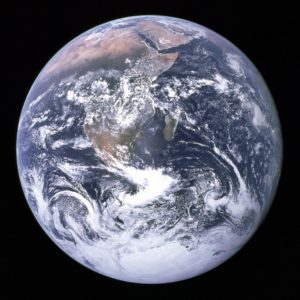
The notion of “whole earth” has meaning for some that goes back to the 1970s when people first saw a photo of earth by NASA. Below, ACLT Board Member Dr. Walter Boynton, Professor Emeritus at the University of Maryland Center for Environmental Science, talks about “whole earth”.
“First, we are all affected by the novel coronavirus … biology of this planet is a powerful force and we need to be constantly thankful for this and aware that these forces do not always assist us humans. The fact that we are having a pandemic emphasizes the idea of whole earth. I wish it were a more positive experience, but we may learn a lot about the importance of working towards some common whole earth goals as a whole earth group of humans … we can hope and work towards such goals.
I think on most days about the even longer-term issue of climate change and the need to make major steps towards addressing and solving this huge and ‘currently happening’ issue.
We need to move towards a more … a much more … renewable energy basis and we need to have a global (as in Earth Day) push in this direction.”